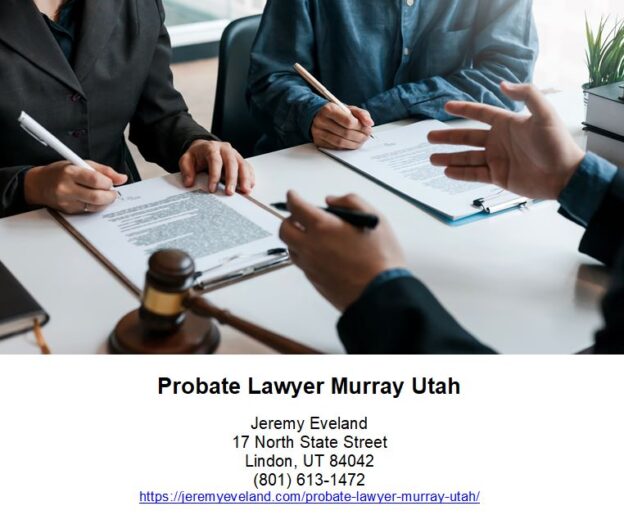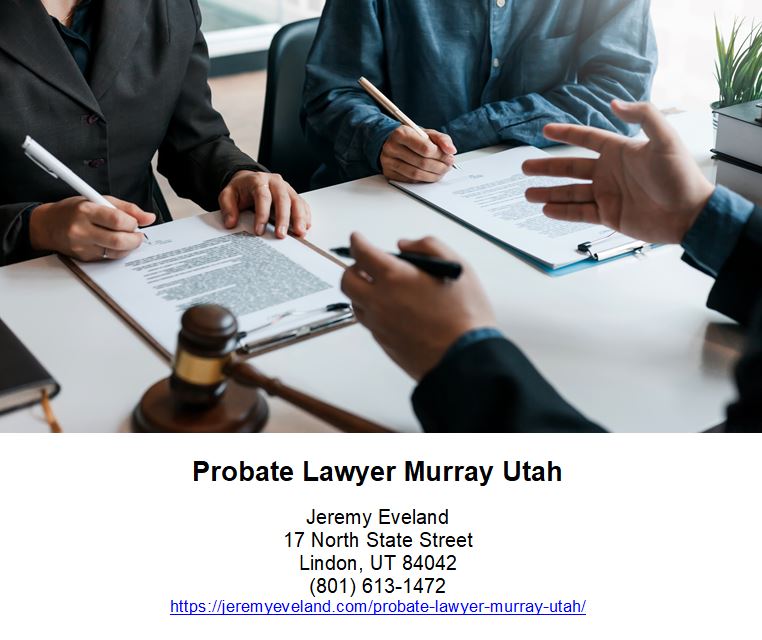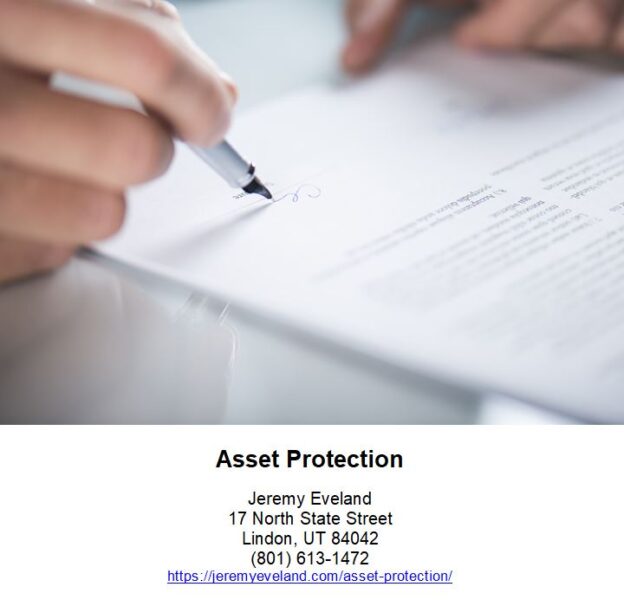In this article, you’ll gain a deeper understanding of trusts. Whether you’re an individual or part of a couple, trusts can play a crucial role in your financial planning. By exploring the ins and outs of trusts, you’ll be equipped with the knowledge to make informed decisions about your estate and assets. So, if you’re ready to embark on a journey of trust exploration, read on to discover the benefits and possibilities that await you.
What is a Trust?
A trust is a legal arrangement that allows an individual, known as the trustor or grantor, to transfer their assets to another party, known as the trustee, for the benefit of one or more beneficiaries. The trustor creates a set of rules, known as the trust document, which outlines how the assets should be managed and distributed. Trusts can be an effective tool for estate planning, asset protection, and managing financial affairs.
Definition of a Trust
A trust is a legal entity that holds assets on behalf of beneficiaries. It is created when a trustor transfers ownership of assets to a trustee, who then manages and distributes those assets according to the terms of the trust document. The trust document serves as a written agreement that establishes the rules and conditions for the trust.
Purpose of a Trust
The primary purpose of a trust is to provide a mechanism for the management and distribution of assets. Trusts can be used for various purposes, such as avoiding probate, protecting assets from creditors, minimizing estate taxes, providing for the care of minor children, and supporting charitable causes. Trusts offer a level of control, flexibility, and privacy that many other estate planning tools do not provide.
Key Participants in a Trust
There are several key participants involved in a trust:
- Trustor/Grantor: The person who creates the trust and transfers assets into it.
- Trustee: The individual or institution responsible for managing and administering the trust assets according to the terms of the trust document.
- Beneficiaries: The individuals or entities who are entitled to receive the benefits from the trust assets.
- Successor Trustee: In case the original trustee becomes unable or unwilling to fulfill their duties, a successor trustee is designated to take over the management of the trust.
- Trust Protector: A trust protector is an individual or entity appointed to oversee the trustee’s actions and ensure the trust’s objectives are met. They have the authority to modify the terms of the trust if necessary.
- Attorney: A trust attorney is a legal professional who specializes in trust law and can assist with the creation, administration, and modification of trusts.
Types of Trusts
Trusts come in various types, each with its own set of rules and purposes. Understanding the different types of trusts can help you choose the one that aligns with your specific objectives and needs.
Revocable Trust
A revocable trust, also known as a living trust, is a trust that can be altered, amended, or revoked by the trustor during their lifetime. It provides flexibility and control over the trust assets, allowing the trustor to manage and distribute them as they see fit. A revocable trust also helps avoid probate, maintain privacy, and provide for the smooth transfer of assets upon the trustor’s death.
Irrevocable Trust
On the other hand, an irrevocable trust cannot be easily modified or revoked by the trustor. Once assets are transferred into an irrevocable trust, they no longer belong to the trustor but rather to the trust itself. Irrevocable trusts are commonly used for asset protection, charitable giving, and minimizing estate taxes.
Living Trust
A living trust, also known as an inter vivos trust, is a trust created during the trustor’s lifetime. It allows the trustor to transfer assets into the trust, retain control over those assets, and designate how they should be managed and distributed. Living trusts can help avoid probate, provide for the smooth transition of assets, and maintain privacy.
Testamentary Trust
Unlike living trusts, testamentary trusts are created through a will and only take effect upon the trustor’s death. The trust assets are distributed and managed according to the instructions outlined in the trustor’s will. Testamentary trusts are commonly used to provide for minor children, protect assets for future generations, and support charitable causes.
Charitable Trust
A charitable trust is a trust established to benefit charitable organizations or causes. These trusts provide a way for individuals to support their favorite charities while potentially gaining tax advantages. Charitable trusts can be set up during the trustor’s lifetime or through their will and can provide an ongoing source of support for charitable endeavors.
Special Needs Trust
A special needs trust, also known as a supplemental needs trust, is designed to provide for the financial needs of individuals with disabilities without jeopardizing their eligibility for government benefits. This trust allows the trustor to leave assets for the care and support of a loved one with special needs, ensuring they have the resources necessary to maintain their quality of life.
Asset Protection Trust
An asset protection trust is a trust specifically designed to protect the trustor’s assets from creditors and legal claims. These trusts are commonly used by individuals who have significant assets they want to shield from potential lawsuits, divorce settlements, or other financial liabilities. Asset protection trusts can provide a layer of security and peace of mind for those concerned about protecting their hard-earned wealth.
Family Trust
A family trust, also known as a revocable living trust or a family revocable trust, is a trust created by a family to manage and distribute their assets for the benefit of the family members. These trusts can help avoid probate, maintain privacy, and provide for the smooth transfer of assets within the family. Family trusts can be customized to meet the specific needs and goals of the family members.
Generation-Skipping Trust
A generation-skipping trust, also known as a dynasty trust, allows individuals to transfer assets to future generations without incurring estate taxes. This type of trust can ensure that wealth is preserved and passed down to grandchildren or even great-grandchildren. Generation-skipping trusts can provide long-term financial stability and support for future generations.

Click Here For More Information
Benefits of Trusts
Trusts offer numerous benefits that make them valuable tools for estate planning, asset protection, and financial management.
Asset Protection
One of the key benefits of trusts is asset protection. By transferring assets into a trust, individuals can keep those assets separate from their personal property, making them less vulnerable to lawsuits, creditors, and other legal claims. Trusts can protect assets from potential financial risks and ensure they are safeguarded for the intended beneficiaries.
Avoiding Probate
Probate is the legal process through which a deceased person’s assets are distributed to their heirs. It can be time-consuming, expensive, and subject to public scrutiny. By establishing a trust, individuals can transfer assets outside of probate, allowing for a faster and more private distribution of assets. Avoiding probate can also help minimize costs and reduce the burden on loved ones during an already difficult time.
Privacy
Trusts offer a greater level of privacy compared to wills or other estate planning tools. Since trust assets are distributed outside of probate, the details of the trust and its beneficiaries remain private. This can be particularly important for individuals who value confidentiality and want to keep their financial affairs out of the public record.
Control and Flexibility
Trusts provide individuals with a high degree of control and flexibility over their assets. Through the trust document, the trustor can specify exactly how they want their assets to be managed, who should benefit from them, and under what conditions. This level of control allows individuals to customize their estate plan to reflect their unique circumstances and ensure their wishes are carried out.
Tax Planning
Trusts can be powerful tools for tax planning, allowing individuals to minimize estate taxes, gift taxes, and generation-skipping transfer taxes. Depending on the type of trust and its structure, assets held in a trust may be excluded from the taxable estate, reducing the overall tax burden on the estate. By working with a knowledgeable trust attorney, individuals can develop strategies to effectively manage their tax liabilities and protect their assets for future generations.
Estate Planning
Estate planning is a critical component of trusts. They provide a means for individuals to plan for the distribution of their assets, minimize potential disputes among heirs, and ensure their final wishes are carried out. Trusts can address complex family dynamics, protect assets for minor children or individuals with special needs, and support charitable causes that are meaningful to the trustor. By incorporating trusts into an overall estate plan, individuals can protect their assets, minimize taxes, and provide for their loved ones’ financial security.
Charitable Giving
For individuals who have a desire to support charitable causes, trusts provide a vehicle for charitable giving. Charitable trusts allow individuals to transfer assets to a trust, receive tax benefits for their charitable contributions, and ensure ongoing support for their chosen charities. These trusts can be established during the trustor’s lifetime or through their will and offer a way to leave a lasting legacy of philanthropy.
Setting Up a Trust
Creating a trust involves several important steps that must be carefully considered and executed.
Choosing the Right Trust
The first step in setting up a trust is to determine the type of trust that best suits your objectives and needs. Whether it’s a revocable trust, irrevocable trust, living trust, or charitable trust, understanding the purpose and benefits of each type can help you make an informed decision. Consulting with a trust attorney is advisable to ensure you choose the right trust for your specific circumstances.
Selecting Trustees
Choosing the right trustee is essential for the successful administration of a trust. A trustee should be someone who is trustworthy, responsible, and capable of managing the trust assets prudently. Trustors can select an individual trustee, such as a family member or friend, or opt for a professional trustee, such as a bank or trust company. It’s important to consider the trustee’s financial acumen, integrity, and willingness to fulfill their fiduciary duties.
Identifying Beneficiaries
Beneficiaries are the individuals or entities who will benefit from the trust assets. Identifying beneficiaries is a crucial step in setting up a trust. Consider who should benefit from the assets, when they should receive distributions, and what conditions or restrictions should apply. It’s important to clearly define the beneficiaries’ rights and entitlements in the trust document to avoid ambiguity or potential disputes later on.
Creating the Trust Document
The trust document, also known as the trust agreement or declaration of trust, is a legal document that outlines the terms, conditions, and rules of the trust. It specifies how the trust assets should be managed, who the beneficiaries are, and under what circumstances distributions should be made. The trust document should be carefully drafted, either by a trust attorney or with their guidance, to ensure it reflects the trustor’s wishes and complies with applicable laws.
Funding the Trust
To make the trust valid and functional, the trustor must transfer assets into the trust. This process is known as funding the trust. It involves re-titling assets, such as property, bank accounts, investments, and other valuable items, into the name of the trust. Properly funding the trust is crucial to ensure that the assets are held and managed according to the trust’s terms. Any assets that are not transferred into the trust may be subject to probate.
Updating the Trust
Creating a trust is not a one-time event. As circumstances change, it’s important to review and update the trust periodically. Marriage, divorce, births, deaths, changes in financial circumstances, and new tax laws are all events that may warrant updates to the trust document. Regularly reviewing and updating the trust can help ensure it continues to align with the trustor’s wishes and achieves its intended objectives.
Trust Administration
Once a trust is established, it requires ongoing administration to properly manage and distribute trust assets.
Roles and Responsibilities of Trustees
Trustees play a crucial role in the administration of a trust. They have a fiduciary duty to act in the best interests of the beneficiaries and must adhere to the terms and conditions outlined in the trust document. Trustees are responsible for managing and protecting the trust assets, making investment decisions, distributing assets to beneficiaries, and maintaining accurate records. It’s important for trustees to understand their legal responsibilities and seek professional advice when necessary.
Managing Trust Assets
Trustees are responsible for managing the trust assets prudently and in accordance with the trustor’s instructions. This includes making investment decisions, monitoring the performance of investments, and ensuring that the assets are safeguarded. Trustees should have a solid understanding of investment strategies, risk management, and legal and ethical considerations when managing trust assets.
Distributing Trust Assets
Distributing trust assets is a key responsibility of the trustee. Trustees must follow the terms and conditions set forth in the trust document when making distributions to beneficiaries. This may involve determining the timing and amount of distributions, considering the needs of the beneficiaries, and ensuring that distributions are made in a fair and equitable manner. Trustees must exercise care and discretion when making distribution decisions.
Recordkeeping and Reporting
Trustees are required to keep accurate records of all trust transactions and activities. This includes maintaining records of income, expenses, investments, distributions, and any other relevant financial information. Trustees must also provide regular reports to the beneficiaries, keeping them informed about the status of the trust, the value of the assets, and any significant changes or developments. Proper recordkeeping and reporting are essential for transparency and accountability in trust administration.
Estate Planning and Trusts
Trusts are an integral part of estate planning, helping individuals protect their assets, provide for their loved ones, and ensure their final wishes are carried out.
Integrating Trusts into Estate Plans
Estate planning involves creating a comprehensive strategy to manage and distribute assets upon death or incapacity. Trusts can play a vital role in estate plans by providing a mechanism for asset management, minimizing taxes, avoiding probate, and protecting family wealth. By integrating trusts into estate plans, individuals can safeguard their assets, preserve their legacies, and provide for future generations.
Avoiding Estate Taxes
Estate taxes can significantly reduce the value of an individual’s estate, leaving less for their loved ones. Trusts can help mitigate estate taxes by removing assets from the taxable estate, taking advantage of tax exemptions, and utilizing tax planning strategies. By working with a trust attorney who specializes in estate tax planning, individuals can explore options to minimize their estate tax liabilities and maximize the value of their legacies.
Providing for Children
Trusts are an effective tool for providing for minor children or grandchildren in the event of the trustor’s death. Through a trust, individuals can designate how their assets should be managed and distributed to support the financial needs of their children. Trusts can ensure that a child’s inheritance is protected, managed responsibly, and used for their education, healthcare, and general well-being until they reach a certain age or achieve specific milestones.
Protecting Family Wealth
Many individuals desire to preserve their family wealth and ensure it lasts for future generations. Trusts can be instrumental in protecting family wealth from potential financial risks, creditor claims, and other threats. By establishing a family trust, individuals can create a framework for the ongoing management and distribution of family assets, ensuring that future generations continue to benefit from the trust’s resources.
Succession Planning
Trusts can also facilitate succession planning for family businesses or assets. By transferring ownership of the business or assets into a trust, individuals can ensure a smooth transition of control and management to the next generation. Trusts can help preserve family businesses, maintain family harmony, and provide a framework for the long-term success and sustainability of the business or assets.

Trusts and Taxes
Understanding the tax implications of trusts is crucial for effective financial planning and wealth preservation.
Income Tax Considerations
For tax purposes, trusts are separate legal entities that may be subject to income taxes. The taxation of trusts can be complex and depends on various factors, such as the type of trust, the source of income, and the distribution of assets. Trustees must ensure that the trust complies with all applicable tax laws, file the necessary tax returns, and fulfill their obligations as responsible taxpayers.
Gift Tax Implications
Transferring assets into a trust may have gift tax implications, depending on the value of the assets and the trustor’s lifetime gift tax exemption. Gift taxes are imposed on transfers of property or assets during the trustor’s lifetime. Proper tax planning and working with a trust attorney can help individuals navigate the gift tax rules and maximize their available exemptions to minimize any potential tax liabilities.
Generation-Skipping Transfer Tax
Generation-skipping transfer tax (GSTT) is a federal tax imposed on transfers of assets to beneficiaries who are more than one generation younger than the trustor. Generation-skipping trusts are commonly used to minimize the impact of GSTT by leveraging available exemptions and tax planning strategies. It is important for individuals considering generation-skipping trusts to understand the potential tax implications and consult with a qualified trust attorney.
State Estate Taxes
In addition to federal estate taxes, some states impose their own estate taxes. The rules and exemptions for state estate taxes vary depending on the state. Trusts can be a valuable tool for minimizing state estate taxes by removing assets from the taxable estate or taking advantage of state-specific tax planning strategies. Consulting with a trust attorney who is knowledgeable about state estate tax laws can help individuals navigate these complexities.
Reporting Requirements
Trusts typically have reporting requirements that must be fulfilled to comply with tax laws and regulations. Trustees are responsible for filing trust tax returns, providing necessary tax documents to beneficiaries, and reporting any income or distributions made from the trust. Failure to meet the reporting requirements can result in penalties and legal consequences. Trustees should seek professional guidance to ensure proper compliance with all tax reporting obligations.
Trustee Duties and Obligations
Trustees have certain duties and obligations that they must fulfill to properly administer a trust and protect the interests of the beneficiaries.
Loyalty and Fiduciary Duty
Trustees have a fundamental duty of loyalty to act in the best interests of the beneficiaries. They must put the beneficiaries’ needs and interests ahead of their own and make decisions that maximize the trust’s value and benefits. Trustees must avoid conflicts of interest, act impartially, and exercise their powers in a responsible and ethical manner.
Prudent Investment
Trustees have a duty to prudently invest and manage the trust assets. This includes making informed investment decisions, diversifying the trust portfolio, and avoiding unnecessary risks. Trustees should have a basic understanding of investment principles, consult with financial advisors when necessary, and act in accordance with applicable laws and regulations.
Accounting and Recordkeeping
Trustees are responsible for maintaining accurate and comprehensive records of all trust transactions, income, expenses, and distributions. They should keep detailed financial statements, bank records, and other relevant documents. Trustees must provide regular accounting reports to beneficiaries, keeping them informed about the trust’s financial status. Proper accounting and recordkeeping are essential for transparency, accountability, and compliance with legal requirements.
Conflicts of Interest
Trustees must avoid conflicts of interest that could compromise their ability to act in the best interests of the beneficiaries. Conflicts of interest occur when a trustee’s personal or financial interests conflict with their fiduciary obligations. Trustees should disclose any potential conflicts and seek advice from legal and financial professionals to ensure they act impartially and in accordance with their duties.

Revocable Trust vs. Will
Revocable trusts and wills are both estate planning tools, but they have distinct differences in terms of probate, asset distribution, privacy, flexibility, and cost.
Overview of Revocable Trust and Will
A revocable trust is a legal entity that allows individuals to transfer assets and specify how those assets should be managed and distributed upon their death or incapacity. A will, on the other hand, is a legal document that outlines an individual’s wishes regarding the division of their assets, guardianship of minor children, and other matters after their death. While both revocable trusts and wills serve similar purposes, they differ in the way assets are managed and distributed.
Differences in Probate
One significant difference between revocable trusts and wills is their impact on the probate process. Assets held in a revocable trust do not typically go through probate, as they are already owned by the trust and are therefore not considered part of the probate estate. In contrast, assets governed by a will go through probate, which can be time-consuming and subject to court supervision. Avoiding probate is often a key advantage of revocable trusts.
Distribution of Assets
Revocable trusts offer more control and flexibility over the distribution of assets compared to wills. With a revocable trust, the trustor can specify how and when assets should be distributed to beneficiaries. This can be particularly beneficial if the trustor wants to provide for beneficiaries in a staggered or conditional manner. Wills, on the other hand, dictate asset distribution based on the instructions outlined in the document and may be subject to probate court approval.
Privacy and Public Records
Another notable difference between revocable trusts and wills is privacy. Revocable trusts offer a higher level of privacy since trust assets are distributed outside of the probate process and are not typically part of public court records. Wills, however, become public records when submitted to probate court, allowing anyone to access information about the deceased person’s assets, beneficiaries, and estate administration.
Flexibility and Control
Revocable trusts provide individuals with greater flexibility and control over their assets both during their lifetime and after their death. Trustors can amend or revoke the trust at any time, making changes to the trust document as needed. This allows individuals to adapt their estate plans to changing circumstances, such as changes in family relationships, financial goals, or tax laws. Wills, once executed, can only be modified through a formal process, such as executing a new will or codicil.
Cost and Time Considerations
Establishing a revocable trust may involve higher upfront costs compared to creating a will. Trusts require legal and administrative fees to draft the trust document, fund the trust, and ensure proper administration. However, the long-term costs associated with probate may be reduced or eliminated with a trust. Additionally, while both revocable trusts and wills require some degree of time for initial planning, trusts generally require ongoing management, such as asset retitling and updates to the trust document.
Finding the Right Trust Attorney
When considering the establishment, administration, or modification of a trust, it is essential to work with a knowledgeable trust attorney who can provide guidance and expertise throughout the process.
Qualities to Look for
When searching for a trust attorney, there are several qualities to look for:
- Experience: Choose an attorney who specializes in trust law and has extensive experience in handling trust-related matters.
- Expertise: Look for an attorney who possesses a deep understanding of trust laws and regulations, as well as tax and estate planning strategies.
- Client Testimonials: Seek client testimonials and reviews to ensure that the attorney has a proven track record of providing excellent service and achieving positive outcomes for their clients.
- Availability and Communication: Find an attorney who is easily accessible, responsive, and maintains open lines of communication. Trust administration and planning often involve complex legal and financial decisions, so it’s important to have an attorney who is readily available to address inquiries and concerns.
- Fee Structure: Discuss the attorney’s fee structure upfront to ensure it aligns with your budget and expectations. Trust attorneys typically charge either an hourly rate or a flat fee, depending on the nature and complexity of the services provided.
By carefully selecting a trust attorney, individuals can benefit from their expertise, receive personalized advice, and have confidence in the proper establishment and administration of their trust.
In conclusion, trusts offer a versatile and powerful tool for individuals seeking to protect their assets, provide for their loved ones, and achieve their legacy goals. Understanding the different types of trusts, their benefits, and the process of establishing and administering trusts is crucial for effective estate planning and financial management. By working with a qualified trust attorney, individuals can navigate the complexities of trust law, develop tailored solutions, and ensure the proper protection and distribution of their assets. Call [Insert Trust Attorney’s Phone Number] today to learn more and take the next step in securing your financial future.














